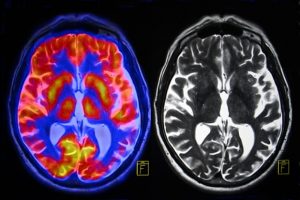 Researchers have compared Alzheimer’s and normal brains and uncovered specific brain regions to be targeted for dementia prevention. While memory decline (to a certain degree) has always been seen as a normal part of aging, researchers have uncovered that some seniors – dubbed “supernormals” – are able to maintain their memory way better than their peers.
Researchers have compared Alzheimer’s and normal brains and uncovered specific brain regions to be targeted for dementia prevention. While memory decline (to a certain degree) has always been seen as a normal part of aging, researchers have uncovered that some seniors – dubbed “supernormals” – are able to maintain their memory way better than their peers.
The researchers explored differences in brain function among three groups of adults: supernormals, older adults with mild cognitive impairment, and a healthy control group. Specifically, the researchers measured functional connectivity between the cingulate cortex and other regions by observing which brain areas are activated at the same time or in rapid success in response to a stimulus.
Advertisement
Lead researcher Feng (Vankee) Lin explained, “The cingulate cortex acts as a ‘hub’ and receives input from many areas in the brain. Its functioning often deteriorates early in the aging process and in the development of Alzheimer’s disease, so it could play a key role in memory decline.”
The researchers also looked at data from the Alzheimer’s Disease Neuroimaging Initiative, which is a collection of brain images. Participants underwent memory, executive function, language, and other tests to assess their cognitive abilities.
Lin found that participants with better functional connectivity had better memory capabilities, compared to those with weaker or less efficient connectivity. Furthermore, supernormals had lower levels of amyloids, which are proteins characteristic of Alzheimer’s disease.
Better yet, even in the presence of amyloids, the supernormals still displayed better functional connectivity and better memory. Apparently, the way the cingulate cortex functions in supernormals may represent extraordinary neural reserve – the brain’s ability to resist damage – protecting supernormals from the impact of amyloids and preserving their memory.
Lin added, “Our results show that the cingulate cortex could be a viable target for interventions aimed at preventing memory decline or enhancing memory capacity. In the future, we may be able to modify the function of this region in individuals who are at risk for developing Alzheimer’s to slow down cognitive decline.”
Lin hopes she can continue her research on a larger study sample to uncover further connections.
